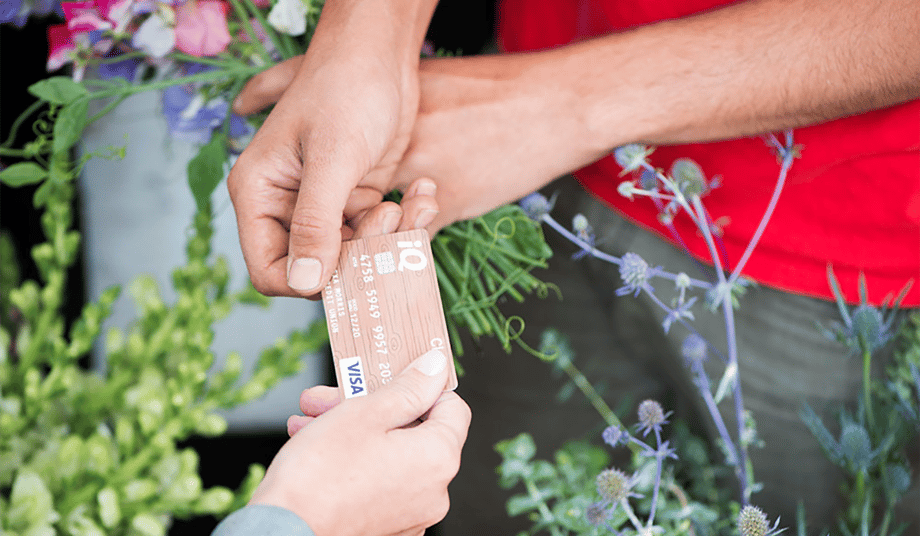
Credit card fraud is rampant, and it’s getting worse. Although consumers seldom have to pay for credit card fraud themselves, every dollar of fraud costs banks and credit unions $2.92. When you consider that worldwide losses from credit card fraud are expected to reach $32.82 billion this year, those are huge costs for financial institutions and merchants.
However, credit card fraud costs consumers in other ways. It leads to a rise in identity theft. The Federal Trade Commission reported 13 million consumer complaints between 2012 and 2016, 42% of which were fraud-related and 13% of which were related to identity theft. While the new EMV chip cards are reducing some forms of credit card fraud, there were still 14.4 million fraud victims in 2018, and 3.3 million of them bore some financial burden totaling $1.7 billion.
Credit card fraud can lead to a number of problems for consumers, such as unauthorized purchases, a negative impact on their credit, and identity theft. Many fraudsters use credit card data to open phony accounts, including mortgages and student loans, and they have become more creative, attacking rewards accounts and loyalty programs.
The best way to combat credit card fraud is to be aware of what it is and how it operates. If you find yourself a victim of fraud, act quickly before the problem escalates.
Tips to Avoid Credit Card Fraud
Here are some tips to help you avoid credit card fraud:
- Keep your credit cards safe: Whether you carry them in your purse or your wallet, keep your credit cards secure at all times. Also, don’t leave your credit cards exposed. If you are making a transaction, pay with a card and put it away. It is easy for anyone to take a snapshot of your card information. Consider carrying your credit cards and your cash separately.
- Shred credit card information: If you are throwing away receipts or old credit card statements, shred them. You never know when a dumpster diver might find something they can use to sell your credit card information.
- Be safe online: More people are using their credit cards for online purchases. Watch for phishing scams, such as phony emails that direct you to a fake transaction site where your card information can be stolen. Never click on a suspicious link in an email. If you get an interesting offer, use your web browser to go to the website directly. When making transactions, be sure the website is secure.
- Scrutinize your billing statements: Keep a close watch on your credit card statements for unauthorized purchases. If something looks wrong, call your credit card company as soon as possible.
- Report lost or stolen cards immediately: If you lose your card, contact the credit card company immediately. Contacting it right away will reduce the chances that you will be liable for fraudulent purchases.
- Watch for skimmers: Skimmers are electronic devices that can be inserted in magnetic card readers to steal credit card details. Sometimes, cyber thieves will replace magnetic card readers, often at gas stations. Other times, dishonest service clerks use skimmers to steal information during a regular transaction. The new EMV chip cards are helping defeat skimmers, but it still pays to be cautious.
- Never sign a blank credit card receipt: This seems obvious, but be sure that a credit card receipt is completely filled out before you sign it.
- Ask for paper or electronic receipts: More businesses are eliminating cash registers and going to card-only transactions, often using a tablet or mobile device to take card information. Be sure to request either a paper receipt or an electronic receipt via email or text to ensure the transaction is accurate.
- Set up transaction alerts: Many banks and credit unions allow you to set up an alert every time a transaction over a preset amount is made using your card. If someone uses your card for a fraudulent transaction, you will be notified right away.
- Avoid Wi-Fi hotspots: If you are using a public network at an airport or in a coffee shop, resist the urge to make online purchases. The internet connection is not secure, and it is easy for someone to steal personal information from your transaction.
- Have a dedicated card for automatic payments: Designate one card for autopay accounts, such as subscriptions. That way, you have a card that is not being processed by restaurant servers or store clerks or being swiped at the gas pump. If the card you use for everyday spending is hacked or stolen, at least your scheduled payments won’t be affected.
These are just a few ways you can protect yourself and prevent credit card fraud. Remember that anyone can fall victim to credit card fraud, no matter how cautious they are. Keep track of your credit card spending and watch for unusual activities by checking your account online regularly. And again, if you suspect a problem, call right away.
If you want to learn more about how to protect your finances, including your credit, download our Financial Survival Guide for helpful insights and tips.

Comments